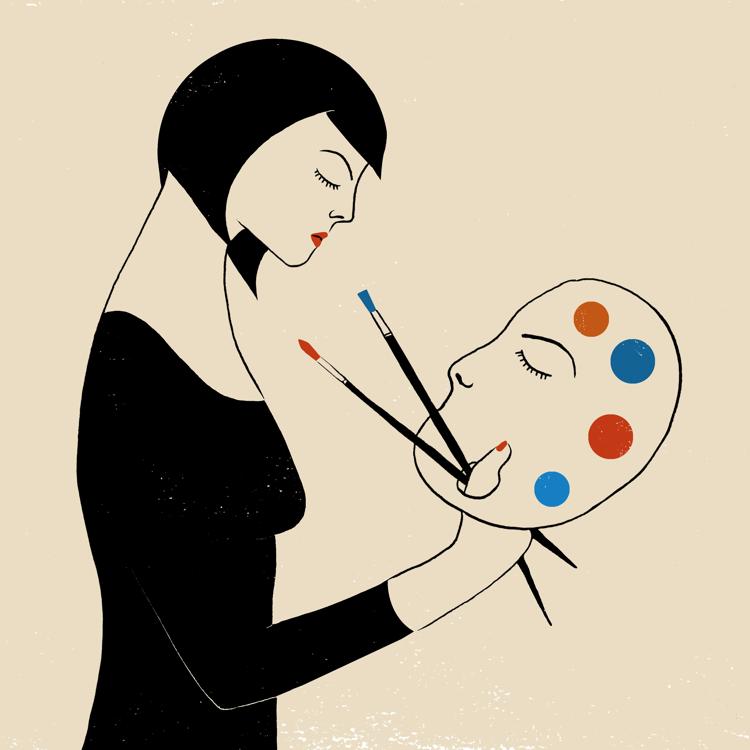
ALL GROWN UP
By Jami Attenberg
Houghton Mifflin Harcourt, 197 pp., $25
After skillfully orchestrating choruses of narrators in her two previous novels, “Saint Maizie’’ and “The Middlesteins,’’ Jami Attenberg channels “All Grown Up’’ through a single voice — and Andrea Bern is not an immediately appealing soloist. Sure, she’s smart, perceptive, and funny, but her humor usually consists of making nastily clever observations about other people. Andrea is so narcissistic that, when her mother moves to New Hampshire to help her brother and sister-in-law care for their terminally ill baby, her niece, Sigrid, she thinks, “I’m the sick baby . . . Me. Who will hold me?’’ Even though she is 39, Andrea is clearly no grown-up.
One of Attenberg’s great gifts as a writer (in addition to the stinging wit she shares with Andrea) is her ability to create characters who aren’t necessarily likeable but are wincingly credible and vulnerable. The defining trauma of Andrea’s adult life, we see in the novel’s first chapter, is that she dropped out of art school and settled for a routine office job; she hates herself for it and is equally resentful of people who remain committed to their dreams and those who are OK with settling.
For a few years, she maintains a tenuous connection with art by repeatedly drawing the view of the Empire State Building from her Brooklyn loft. But shortly after Sigrid is born construction begins on a 10-story condo across the street; a year later, looking at the building that now blocks her view and puts a stop to her drawing, Andrea thinks, “The thing that made you special is gone . . . What next?’’
Subsequent chapters trace an overall forward arc through the five years of Sigrid’s short life but bounce around in time, dipping into Andrea’s childhood and art-school experiences to help us understand why she is having such a difficult time asserting any kind of control over her self-destructive behaviors, let alone actually deciding what comes next.
Attenberg doesn’t make it easy for us to empathize with Andrea. Her neediness and loneliness are vast and vigorously defended; she lashes out at friends, family members, and especially men who presume to try and connect with her. “I don’t feel inspired to make concessions,’’ she tells her therapist while discussing a particularly sweet man she’s turned into yet another short-term lover, “because what’s the point, men will suck you dry anyway?’’
Self-awareness, which Andrea possesses in abundance, is an unwelcome burden for someone who believes she’s incapable of change. “People architect new lives all the time,’’ she grimaces. “It’s just me. I haven’t built anything new. I’m the one getting left behind.’’
Her still-raw anger about being left behind in New York by her family leads Andrea to display shocking meanness when her sister-in-law, Greta, comes to town and confides all the misery and money worries they haven’t shared during Andrea’s cursory weekly phone calls. Attenberg, a brilliant anatomist of discomfiting human complexities, forces us to recognize that the same woman who dubs her family’s mortal problems “both worrisome and boring’’ can turn around and tell us she’s bought a train ticket to New Hampshire for Thanksgiving “because I miss them all so . . . much, and if I don’t see them again soon, touch them, and talk to them, I’ll never survive this life.’’
This, ultimately, is why her friends love Andrea and why we come to care for her. She is blazingly honest; her feelings are totally exposed and never prettied up. The escalating revelations about her childhood explain how she came to conclude, “There is not a person alive who doesn’t want something from me,’’ but Attenberg makes it clear that it was Andrea’s choice to draw this conclusion. She didn’t need to take as gospel the cynical, self-justifying insights imparted by her drug-addicted father. But she was 13; she adored him; and he was dead of an overdose two years later. Andrea is both victim and engineer of her own destiny, an uncomfortable conjunction that holds true for all of us.
Attenberg stays true to her protagonist’s honesty in a painfully moving final scene that suggests hope but makes no promises. Has Andrea finally discovered empathy and rediscovered her calling as a painter? Or has she temporarily been jolted loose from her habitual self-absorption, which will reabsorb her once these extreme circumstances pass? Based on the evidence “All Grown Up’’ provides, the latter is more likely. Based on the powerful emotions Jami Attenberg excavates and elicits, we hope for the former.
ALL GROWN UP
By Jami Attenberg
Houghton Mifflin Harcourt, 197 pp., $25
Wendy Smith, a contributing editor at The American Scholar and Publishers Weekly, reviews books for The Washington Post.



